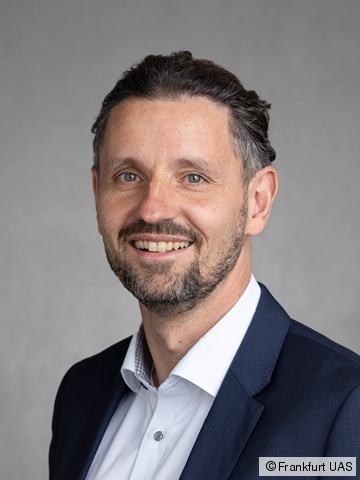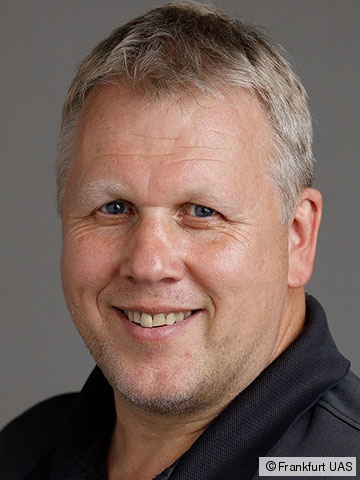The Master's program Infrastructure - Water and Traffic is a joint program offered by the Frankfurt University of Applied Sciences and the Mittelhessen University of Technology in Giessen. The study program combines competences and specialized knowledge of both universities in this field of activity.
The Master's program Infrastructure - Water and Traffic can be studied full-time or part-time. In the case of the part-time variation, the course of study is stretched so that only three instead of six modules are taken per semester. The result is an extension of the study duration from three to five semesters.
Within the framework of the study program the students are introduced into technical, operational and organizational aspects of infrastructure measures in the field of water and transport while taking social, ecological and economic aspects into account. The project-oriented study program focuses on the planning, maintenance and operational optimization of plants and structures.
During the course of study, students can choose from a wide range of options to set priorities. In addition to the comprehensive modules (e.g. from the fields of management, law and environment), it is also possible to choose only elective subjects from one focus area (water or transport). Of course, compulsory elective modules from both areas can also be chosen. If certain criteria are met, a focus is also indicated in the certificate of study and diploma supplement.
Courses take place in Frankfurt am Main and Giessen.
The course concludes with the internationally recognized Master of Engineering (M.Eng.) degree. The standard period of study is three semesters for full-time studies and five semesters for part-time studies. The study program comprises 90 ECTS credits. The degree qualifies students for higher service and doctoral studies. However, students who have completed a six-semester study program can also be admitted. Upon admission these students receive a condition that the remaining 30 credits must be made up within the framework of the Master's program.
Summary
Program | Infrastructure – Water and Transport |
Terms | 3 semesters, full-time |
ECTS-Credit Points | 90 |
Program start | Summer and winter semester |
Application deadlines | with German credentials: Feb 15/ Sep 15. |
with foreign credentials: Jan 15/Jul 15. | |
Languages | German, English |
Accreditation
By ACQUIN e.V. till September 30, 2026 (Full time) and September 30, 2026 (Half time).
Module Overview
Modularization in studies means a study structure in which courses such as lectures, exercises, internships, excursions or seminars are combined into thematic units, the modules. The composition of a module is determined by the competence that is to be achieved by completing this module.
The module handbook contains information on duration, credits, examination type, prerequisites, learning outcomes, workload, learning formats, contents, literature, Module-Managers of the modules of a degree program. Further information can be found in the Guide to Modularization and Credit Awarding of the Federal-State-Commission. The Module Overview and the course contents can be downloaded in PDF format.
Admission requirements
The application deadline for the summer semester is the 15th of February and for the winter semester the 15th of September.
The application deadline for prospective students with foreign degrees is January 15 or July 15.
To the Semester Dates.
The prerequisite for admission to the program is a university degree in civil engineering, railway engineering or other spatial planning relevant subjects such as geo-information and municipal technology, spatial and environmental planning, urban and regional planning, landscape and environmental planning with an average grade of 2.8 or better, provided that applicants have sufficient basic knowledge of infrastructure planning.
Proof is deemed to have been provided if at least 20 ECTS in the field of infrastructure (such as planning of water management facilities, water supply, sewage disposal, planning of road and rail transport facilities) have been acquired prior to the start of studies.
If you would like to apply for an extra-occupational course of study, proof of an existing employment relationship in an engineer-oriented profession must also be enclosed.
The application must be accompanied by a letter of motivation, on the basis of the university degree qualifying the applicant for a profession, with a statement towards the main field of study (infrastructure in general, water or transport), if applicable, or the intended study objective. The given information in the letter of motivation does not yet determine the focus of study.
Please send your application to the Frankfurt University of Applied Sciences.
Due to the aptitude test, no lottery procedure can be carried out.
Career Prospects
Generally the scope of duties of the civil engineers for the manufactured structures ends with the handover/commissioning or after expiry of the warranty obligation. However, optimum management and efficient operation of the facilities are only possible if, in addition to technical expertise, business management knowledge is also available.
Graduates of the Master's program Infrastructure - Water and Transport have both of these competences and are at the same time generalists with broad economic and ecological background knowledge. In addition, they have leadership qualities that enable them to work independently as project managers in planning, operation and management.
The practice-oriented, interdisciplinary education in the Master's program Infrastructure - Water and Transport enables graduates to take responsibility for the following areas of work and functions:
- They are able to manage and implement complex projects on their own responsibility.
- They have instrumental, systematic and communicative skills to be able to survive in the long term in a constantly changing professional world.
- They are able to react to changes in society, such as those triggered by demographic change and are able to develop appropriate concepts.
- They possess a high degree of methodological knowledge and the ability to communicate across different occupational groups.
A wide range of activities is opened up, both in the municipal and public sector as well as in the private sector:
- Local, regional, national and international authorities and institutions
- Water, sewage and soil associations
- Transport associations
- Building and planning offices
- Engineering and planning offices
- Supply and disposal companies
- Energy supply companies
- Transport operators
- Development agencies






